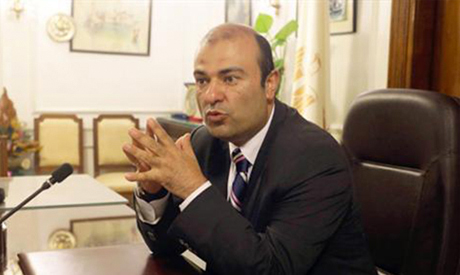
Khaled Hanafy, the Egyptian Minister of Supply
Egypt’s minister of supply and internal trade announced his resignation on Thursday amid criticism from MPs over recent wheat procurement, as well as the minister's residence at a five-star hotel in Cairo.
In July Egypt launched an inquiry into whether millions of dollars intended to subsidise farmers were used to purchase wheat that did not exist.
A corruption report, delivered late last week to the speaker of parliament, concluded some 200,000 tonnes of wheat was missing at ten private storage sites visited by a fact-finding commission.
Khaled Hanafy's resignation also comes a few days after he was criticised because it was revealed he had been staying at a five-star hotel in Cairo for the past two years.
The ministry denied in an official statement that Hanafy had used public funds to pay for his stay, adding that the minister’s bill at the hotel was paid out of his personal funds.
Prime Minister Sherif Ismail has appointed trade minister Tarek Kabil to act as a temporary supply minister until a new minister is selected.
According to state agency MENA, a "limited" cabinet reshuffle is set to take place soon according to informed sources.
Hanafy was appointed minister in February 2014 by then-premier Ibrahim Mahlab.
He introduced a new food subsidy smart system to eliminate smuggling of subsidised wheat, and made a wider variety of subsidised commodities available to the public.
In June, the ministry said that the government had purchased up to five million tons of local wheat and paid farmers EGP 14 billion (roughly $1.6 billion) for the harvest season, which started in mid-April.
Earlier this month, the Egyptian office of the prosecutor-general stated that its ongoing investigation into alleged corruption surrounding local wheat procurement revealed that some EGP 533 million ($60 million) had been stolen by officials within the agriculture ministry in collusion with silo owners.
The prosecution said that officials took government money earmarked to buy 222,000 tons of wheat from local farmers and pocketed the cash while claiming that the purchases were made.
Short link: